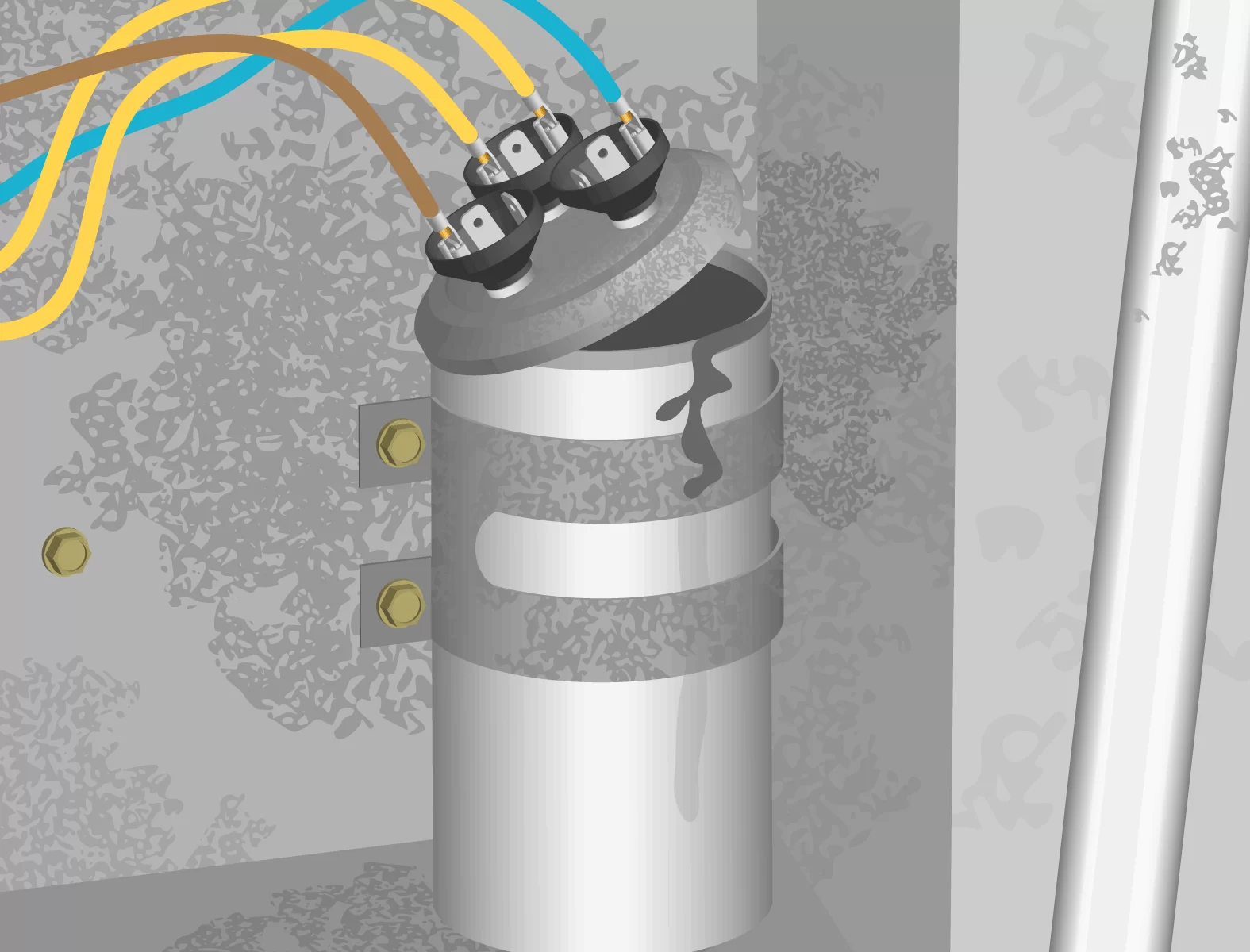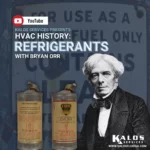Some of the parts that fail the most often, especially in the summer, are run capacitors. Run capacitors are these little devices made of plastic sheeting with a metal coating and oil. They look like cans, and they help motors get up to speed.
A capacitor works like a pressure tank membrane or a balloon; instead of storing and discharging water or air, it stores and discharges electrons. Electrons make up the current, which we measure in amps. That electrical current goes to the compressor and outdoor unit fan motor to help them start up.
To help you visualize that concept, think of the capacitor as a balloon that inflates and deflates 60 times per second (since 60 Hz is the standard electrical frequency in the USA). That then creates a phase shift, which applies directional force to get a motor to spin. You can also think of the capacitor as the person spinning a wheel on a game show; instead of pushing or pulling a wheel directly to get it to spin, that person’s hand (the electrical current) applies force at an angle.
When the capacitor fails, the compressor and outdoor fan can’t start properly. If you’ve owned a home in Florida for a long time, the chances are pretty high that your A/C unit has stopped working due to a failed capacitor at some point. So, why do capacitors fail? Why do they fail so often?
We’re going to look at two very common causes of capacitor failure. Hopefully, the information below will explain why capacitor failure is especially common in Florida.
OVERHEATING
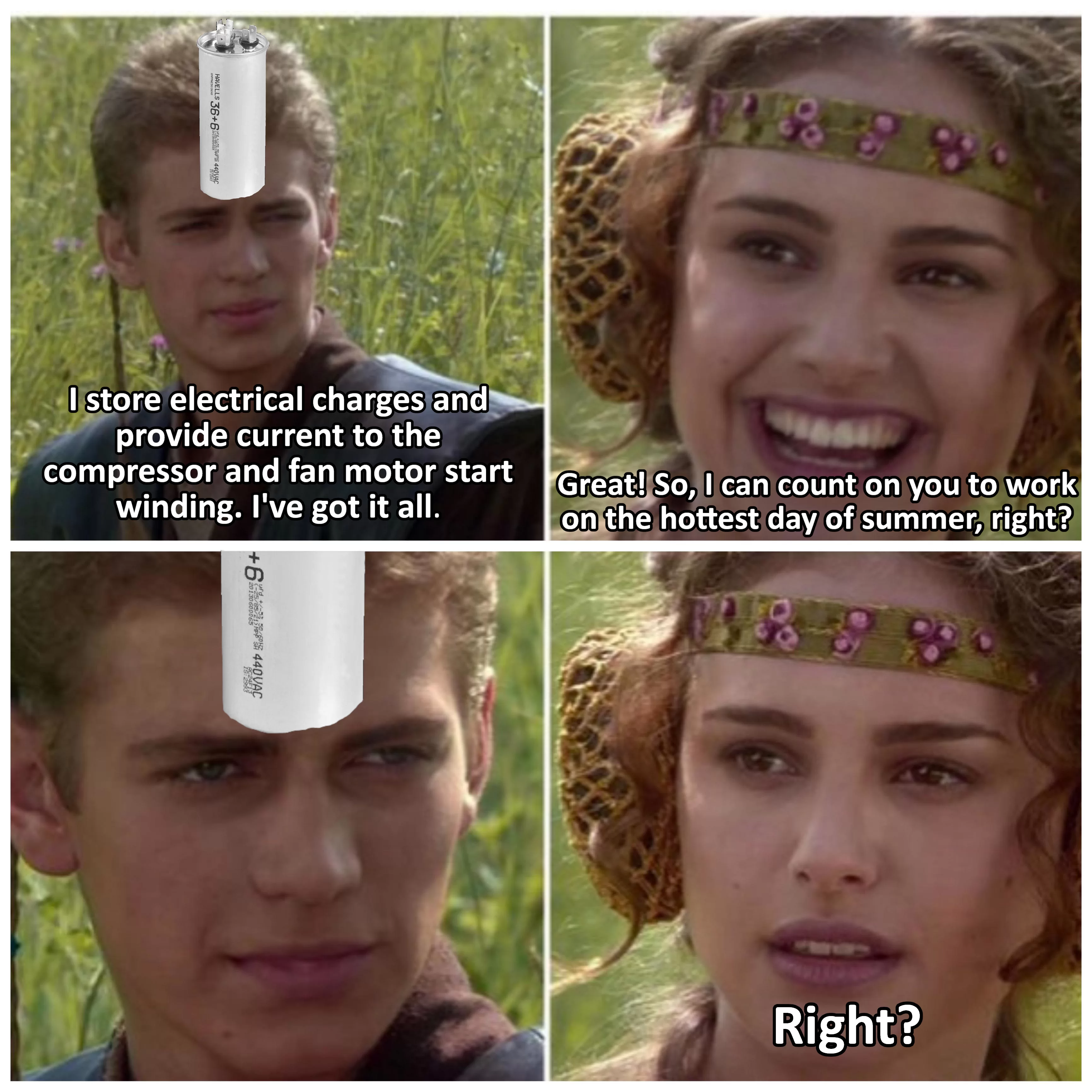
This answer is pretty straightforward. The capacitor just gets too hot!
As electrons pass out of a capacitor, they generate heat. Capacitors contain oil, which helps keep them cool while those electrons pass. Capacitors that are made cheaply or installed incorrectly may not have enough oil; for example, if a technician doesn’t install a capacitor upright, some of the capacitor’s insides might not have enough contact with that oil. So, the heat dissipation isn’t good enough and may lead to failure. We try to prevent these causes of failure by installing capacitors correctly and using American-made capacitors.
The outdoor temperature can also cause capacitors to fail. As you all know, Florida is HOT. So, it’s hardly a mystery as to why so many capacitors fail during the summer. Unfortunately, we can’t exactly stop Florida from being… well, Florida. The best we can do is rely on well-made capacitors from companies we trust.
Dirty outdoor units can also cause premature failure. When the coils are impacted with soil, pet hair, plant material, etc., it becomes much harder for heat to escape the unit. So, a maintenance agreement with an HVAC contractor can allow a professional to clean your outdoor coil thoroughly and help prevent capacitor overheating. It’s usually a good idea to have maintenance procedures done in the spring in fall so that your equipment can prepare to keep you warm (fall) and cool (spring) for the upcoming seasons.
EXCESSIVE VOLTAGE
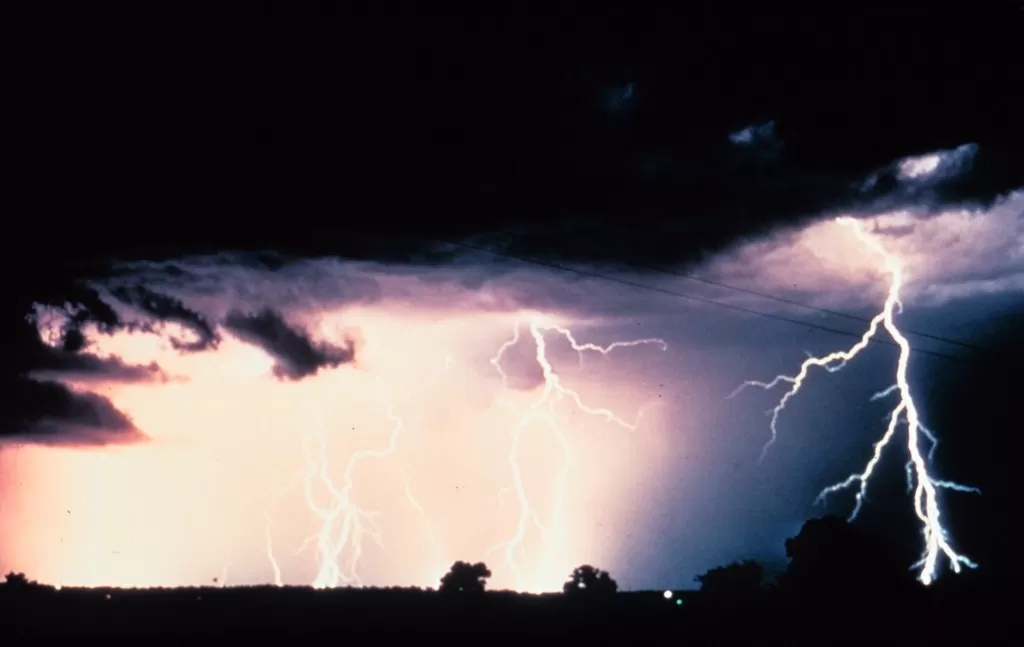
Another common cause of capacitor failure is excessive voltage, which can have a few root causes.
Florida is notorious for its thunderstorms. After all, we do live in the lightning capital of the USA. Unfortunately, there isn’t much we can do to prevent direct strikes (though those events are unlikely).
However, we can think about how to prevent power surges that affect the incoming voltage from the transformer. Those can happen during storms, and they can cause over-voltage conditions that reduce the life of your capacitor. Your best bet would be to install a quality surge suppressor that can shunt the excessive power to ground and protect your HVAC unit (and your capacitor).
We’ve also noticed that the power companies sometimes supply too much voltage without a surge event. A lot of residential equipment is rated for 230v power (208v for light commercial units), and the voltage that’s constantly incoming might slightly exceed that. Small yet constant overvoltage conditions may cause your capacitor to fail prematurely.
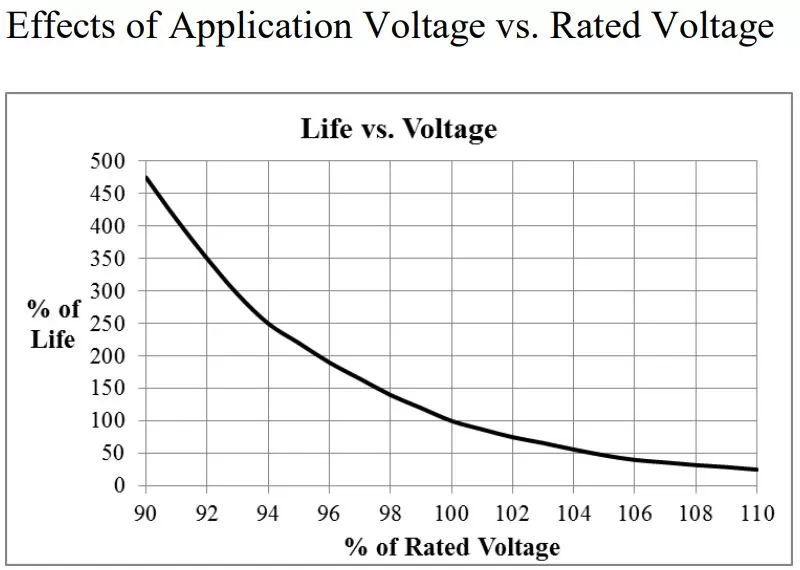
As you can see above, we can expect a capacitor to reach 100% of its lifespan if we maintain 100% of its rated voltage and nothing more. (Of course, that’s barring any other conditions that decrease a capacitor’s lifespan.) The higher the voltage goes, the less likely the capacitor is to reach its full life expectancy. To put that into perspective, if the utility company were to send out power that’s just 105% of the rated voltage, we can expect the capacitor’s lifespan to halve.
Of course, there are other reasons why capacitors may fail. However, the causes explained in this article are two of the most common in our Central Florida market. With power surges and excessive heat being staples of life in Florida, capacitors sadly don’t fare so well.
If your A/C unit stops running this summer, then it’s likely that a failed capacitor is to blame. Give us a call at (352)-243-7099, and we’ll send a technician to do a full system diagnosis. They’ll get to the bottom of the issue and address any other possible areas of concern. We also offer high-quality replacement capacitors that are made in the USA.

